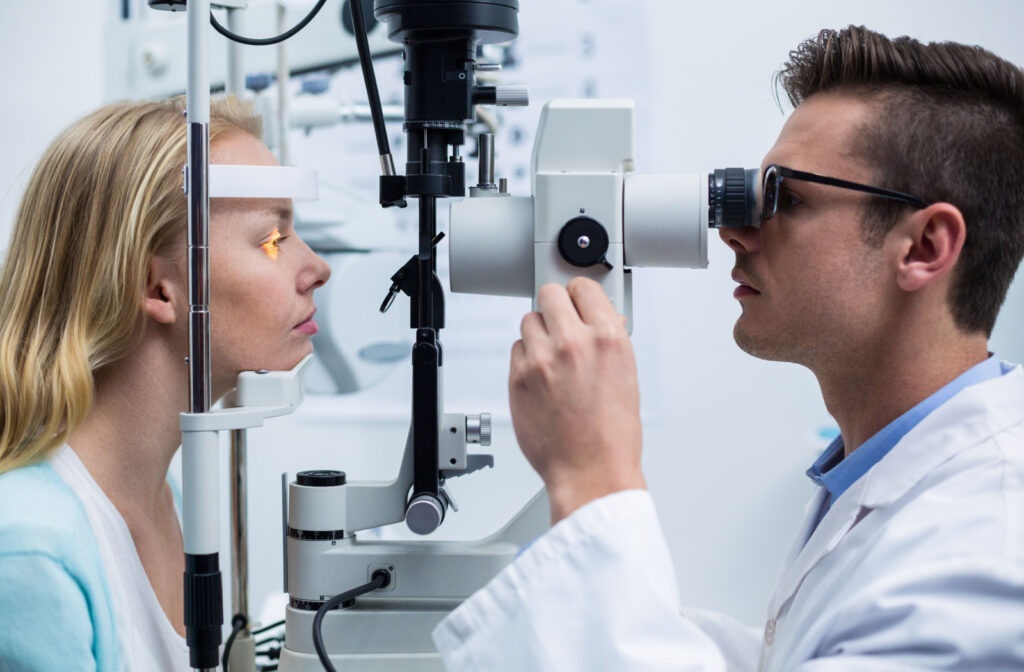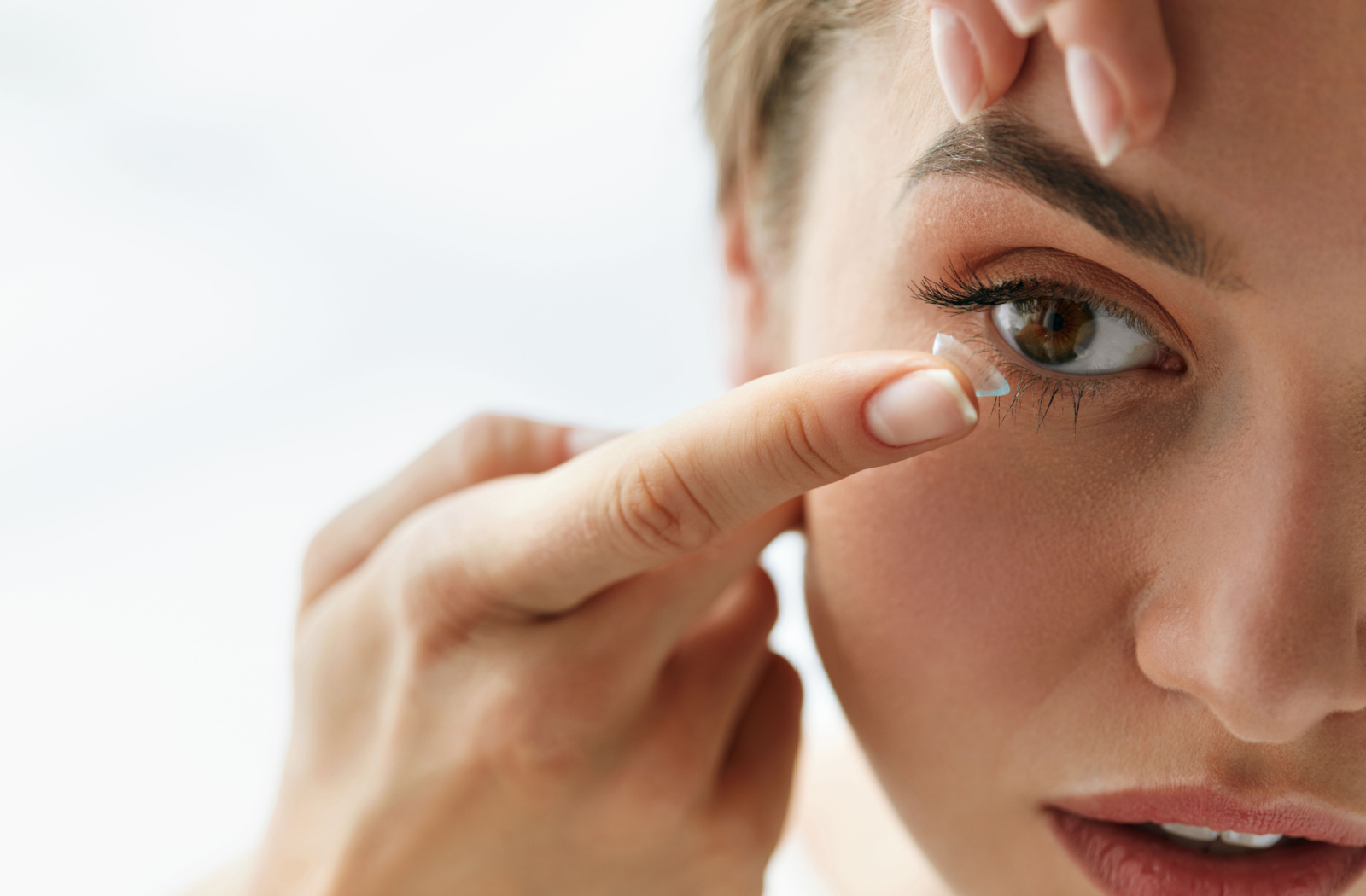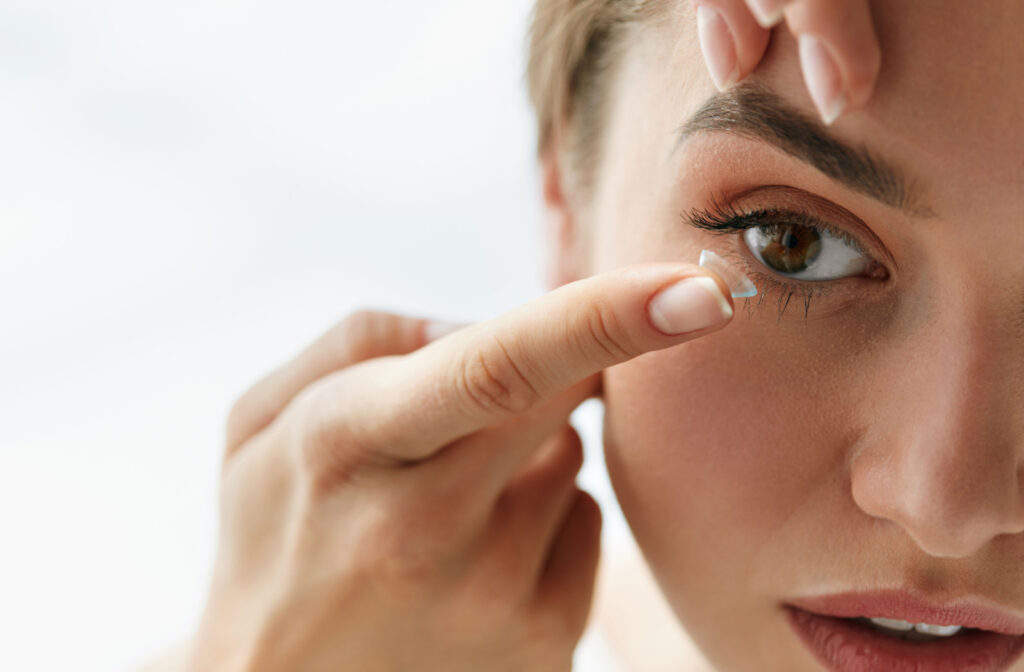If you’re just getting into the world of contacts, or looking to try a new pair, you might have noticed something: there are a lot of options, especially when you start looking at specialty contacts! You’ve got contacts for myopia control, specialty lenses, colored options, and even bifocals and multifocals.
These multifocal contacts are a unique way to approach several vision issues. Unlike other types of lenses, multifocals incorporate several prescriptions into one lens to give you clear vision at all distances! These prescriptions blend seamlessly into each other to avoid the drawbacks of other types of lenses.
What Are Specialty Contacts?
Specialty contacts are designed just for you. They’re not your average off-the-shelf contact lenses; they’re made to cater to specific eye conditions that regular contacts aren’t quite designed to handle. Instead of taking a generic approach to giving you clear vision, specialty contact lenses incorporate different shapes, designs, materials, and focusing powers to improve your vision.
There are plenty of options when it comes to specialty contacts, including:
- Scleral lenses, designed to trap a small amount of tears and give you relief.
- Hybrid lenses, incorporating both rigid and soft materials to avoid irritating the eye.
- Piggyback lenses, where a soft lens is worn under a rigid lens to avoid discomfort.
- Toric lenses, using a different shape to correct astigmatism.
- RoseK lenses that rest directly on the cornea, helping treat conditions like keratoconus.
Then there are bifocals. These are customized specially-designed lenses aiming to treat conditions like presbyopia. Bifocal contacts incorporate two different focusing powers into the lenses—one for nearby vision and one for far. They’re a common way to address certain vision problems, but they do have a small drawback—there’s a clearly defined line between the viewing zones that can be a bit distracting. Multifocals can be a game-changer for people who are bothered by their bifocals.
What Are Multifocal Contacts?
Multifocal contacts are an excellent approach for those struggling with presbyopia. These lenses pack multiple prescriptions into one lens, offering the convenience of bifocal contacts without the drawbacks.
The lenses are designed with:
- A top section that corrects your distance vision
- A center zone that helps with intermediate vision
- A lower section for nearby vision
Unlike bifocals, which often have that clear dividing line between the different prescription powers, multifocal lenses have a slow, gradual adjustment between focal powers. It may take a little while to get used to, as you need to use different parts of the lens for different distances. Once you’ve adjusted, switching between the viewing zones is going to be like second nature to you.
But just like other contacts, they aren’t a one-size-fits-all solution for your vision problems. Instead, you’ll need to schedule a contact lens fitting with your optometrist.
Contact Lens Fittings & Exams
Every person’s eyes are different—some are larger or longer while others may be shorter or wider. So before you get a new pair of contacts, you’ll need a proper fitting.
A contact lens fitting is an essential part of ensuring your contacts offer you the right vision while avoiding discomfort. Just like a regular eye exam, the optometrist is going to check your vision to get you a proper prescription, but since contact lenses and eyeglasses use a different prescription, it’ll be a little different.
During the exam, you can expect the optometrist to:
- Perform a comprehensive eye exam
- Measure your eye’s surface and curvature
- Evaluate your tear film (the liquid layer on your eye’s surface)
- Discuss your lifestyle and contact lens preferences
They may have you try on a few different types of contacts to see what you think. After all, they want to pick the right contacts for your lifestyle! Then, once they have an in-depth understanding of your needs, they’ll be able to give you their professional advice on what types of lenses to try.
Finding The Right Contacts for Your Lifestyle
Remember: contacts aren’t a one-size-fits-all approach. Your lifestyle and needs are completely unique, so our team at Envision Eye Care will work hard to find the right pair of contacts that’ll fit your life.
For example, if you have an active lifestyle and spend a lot of time outdoors, we may recommend daily disposable contacts. On the other hand, if you’re looking for convenience and value, monthly or bi-weekly lenses may be a better fit. If you often experience dry eye, scleral lenses may be the way to go.
Whatever your needs may be, our team of experienced optometrists will work closely with you to find the right contacts for you.

Get the Right Contacts Today
At Envision Eye Care, we’re here to guide you through the process of getting multifocal contact lenses. From your initial eye exam to a detailed contact lens fitting, our team of professional optometrists is ready to help you get the answer you need. Don’t hesitate to reach out to us—we’re just a click or a call away. Book an appointment with us today!



